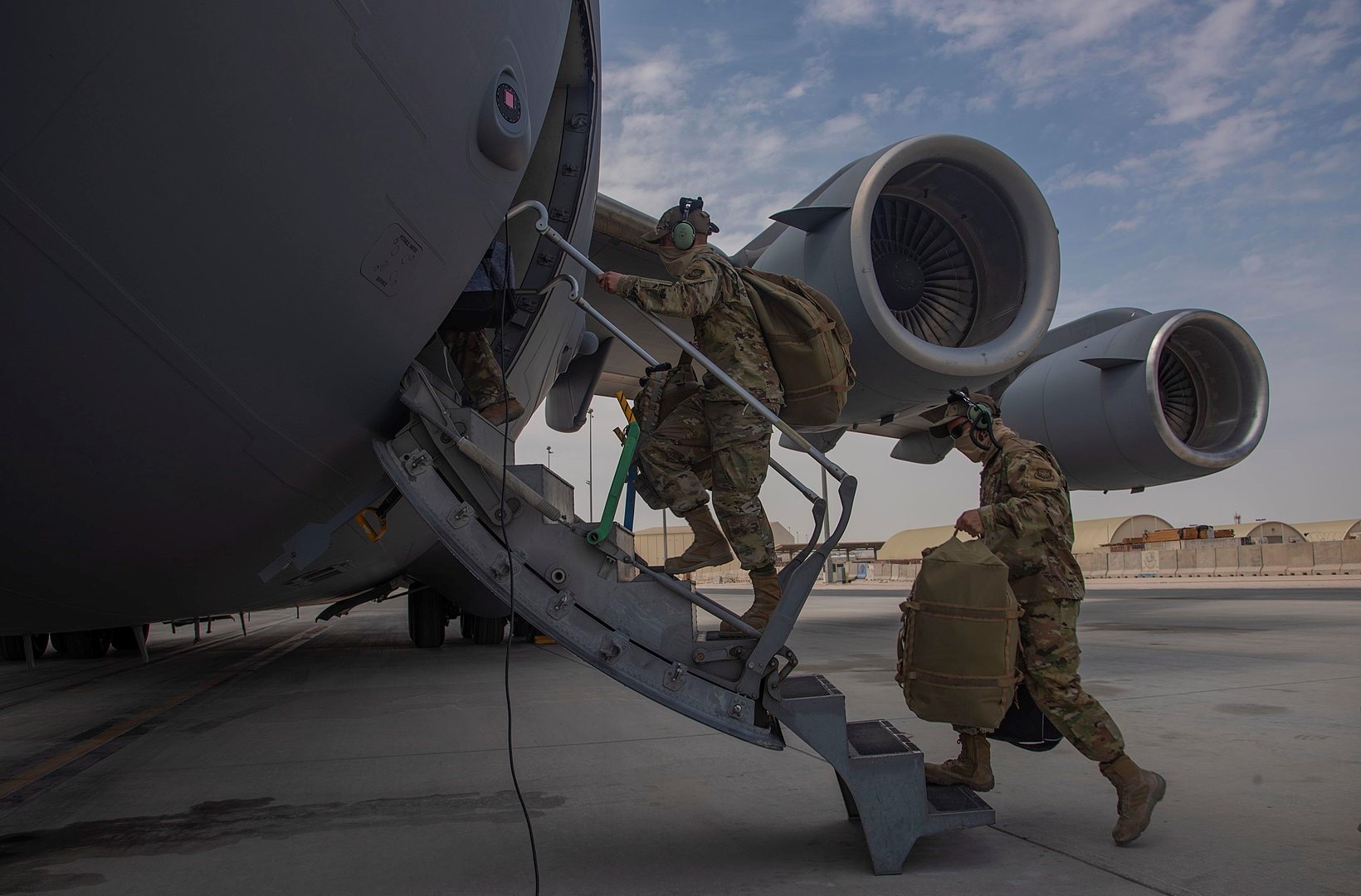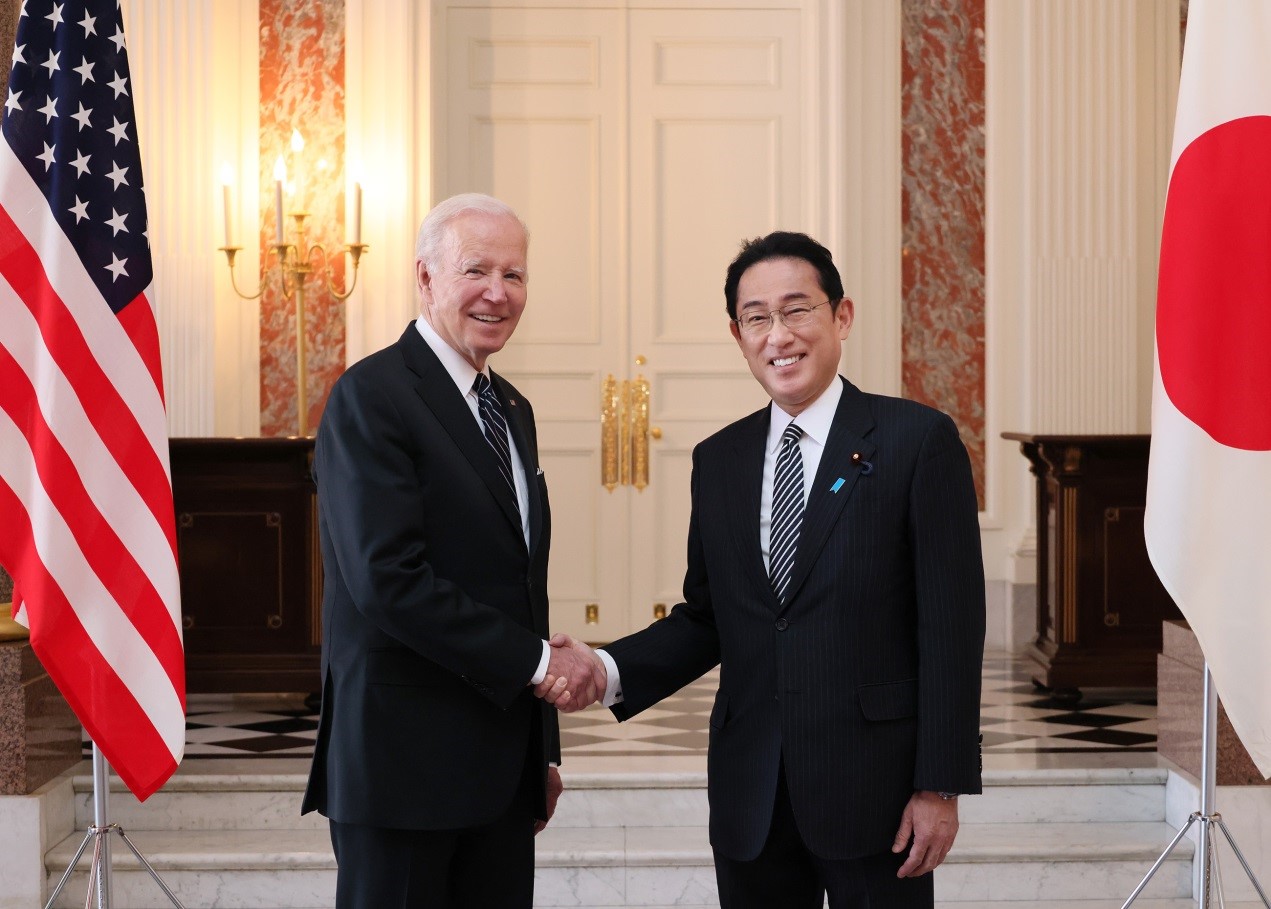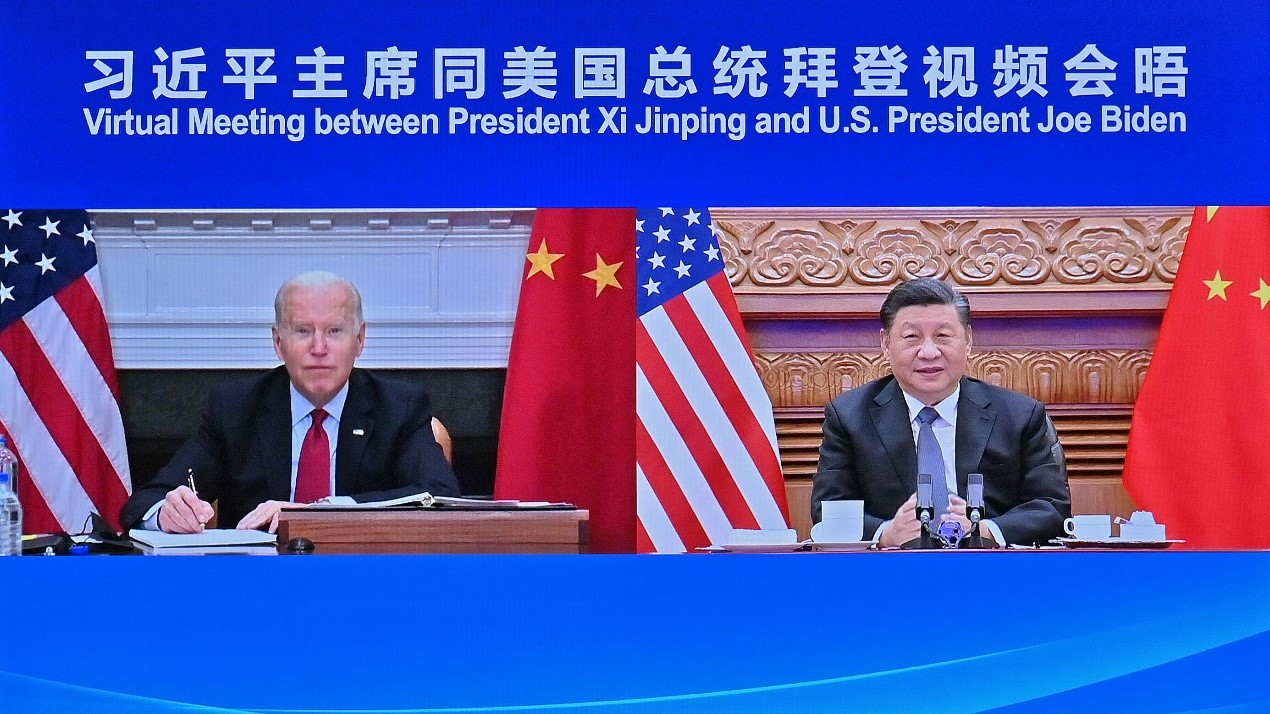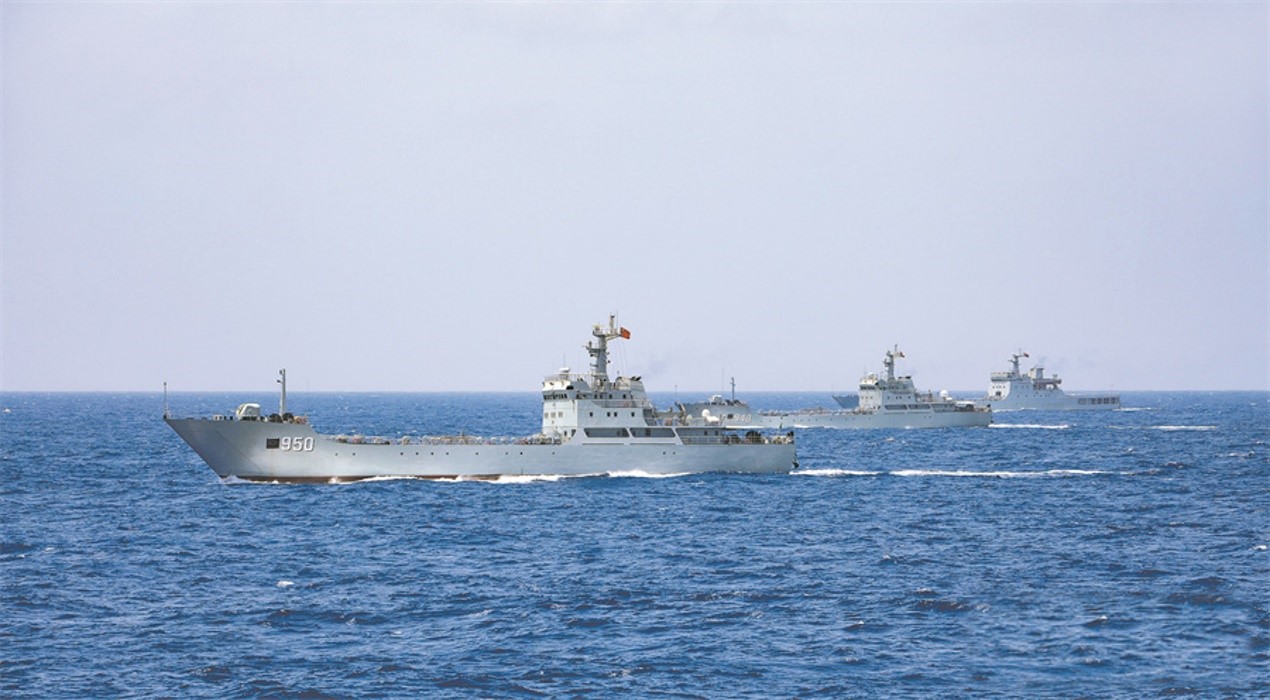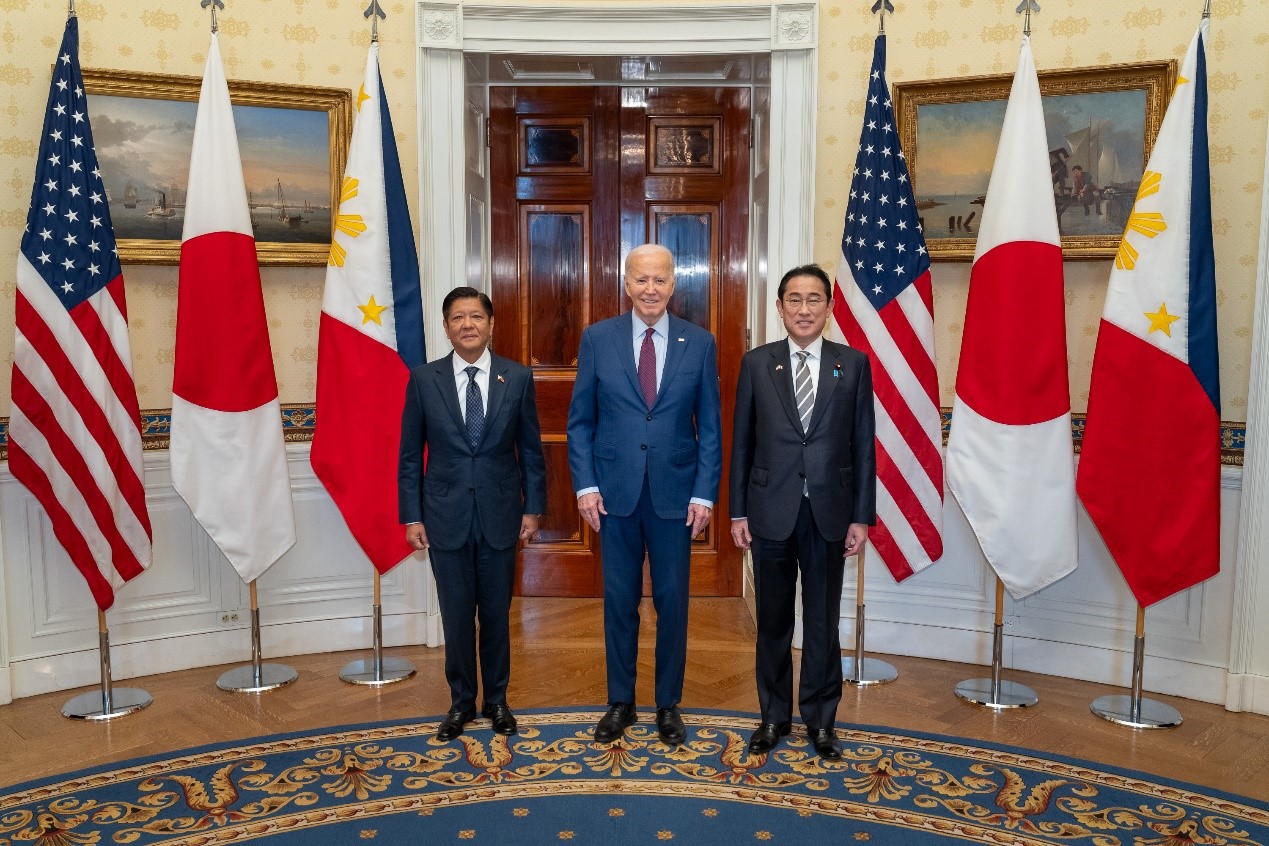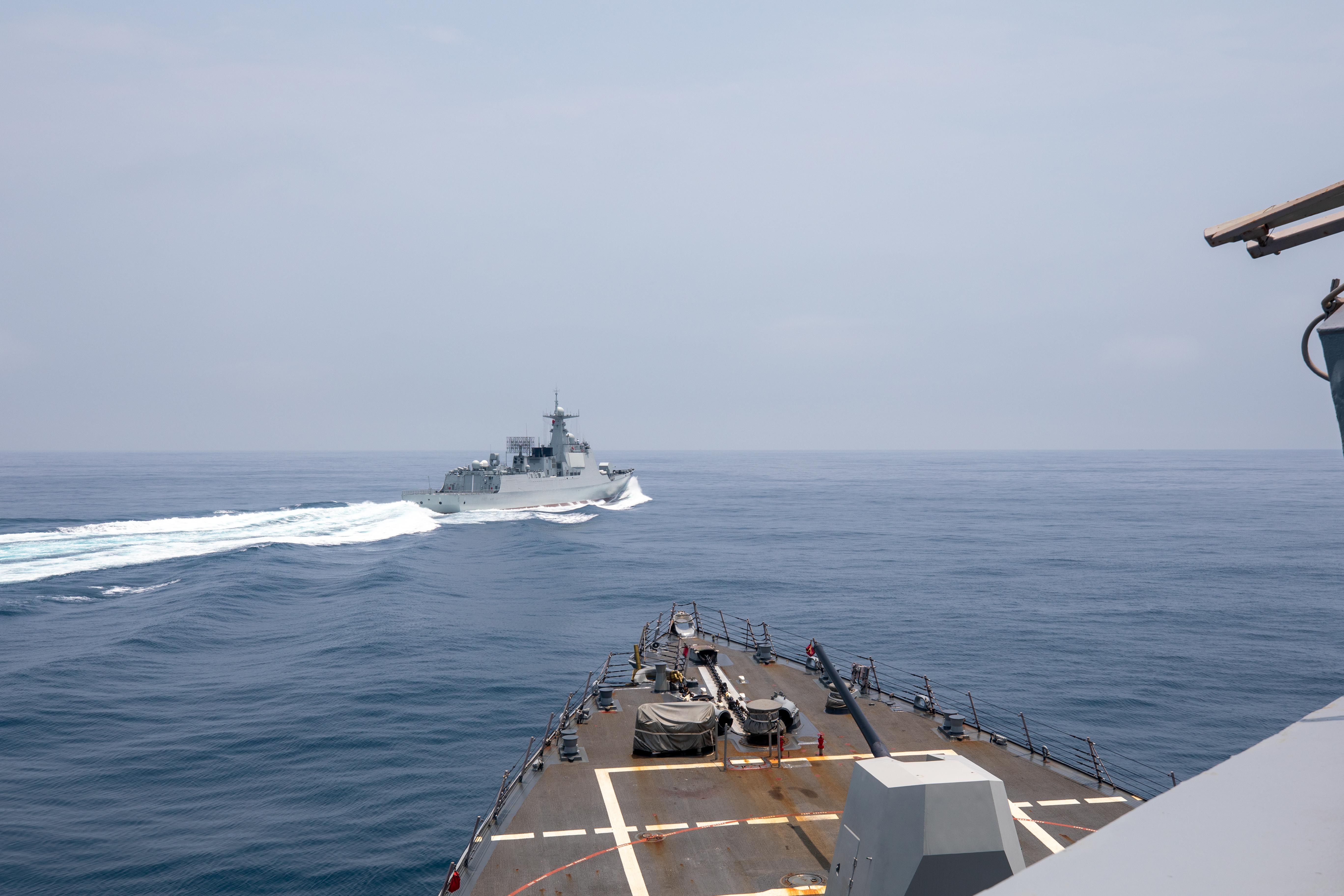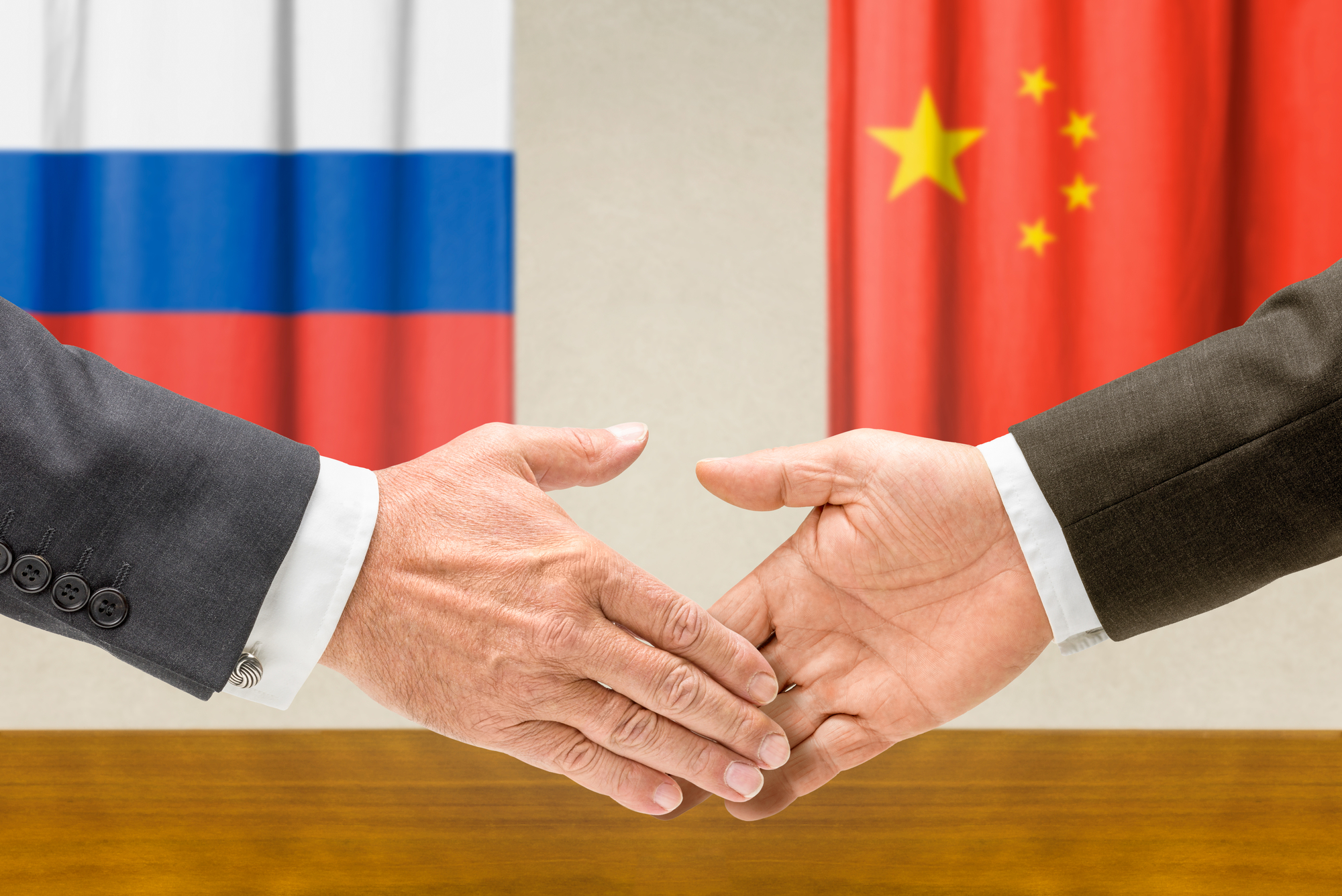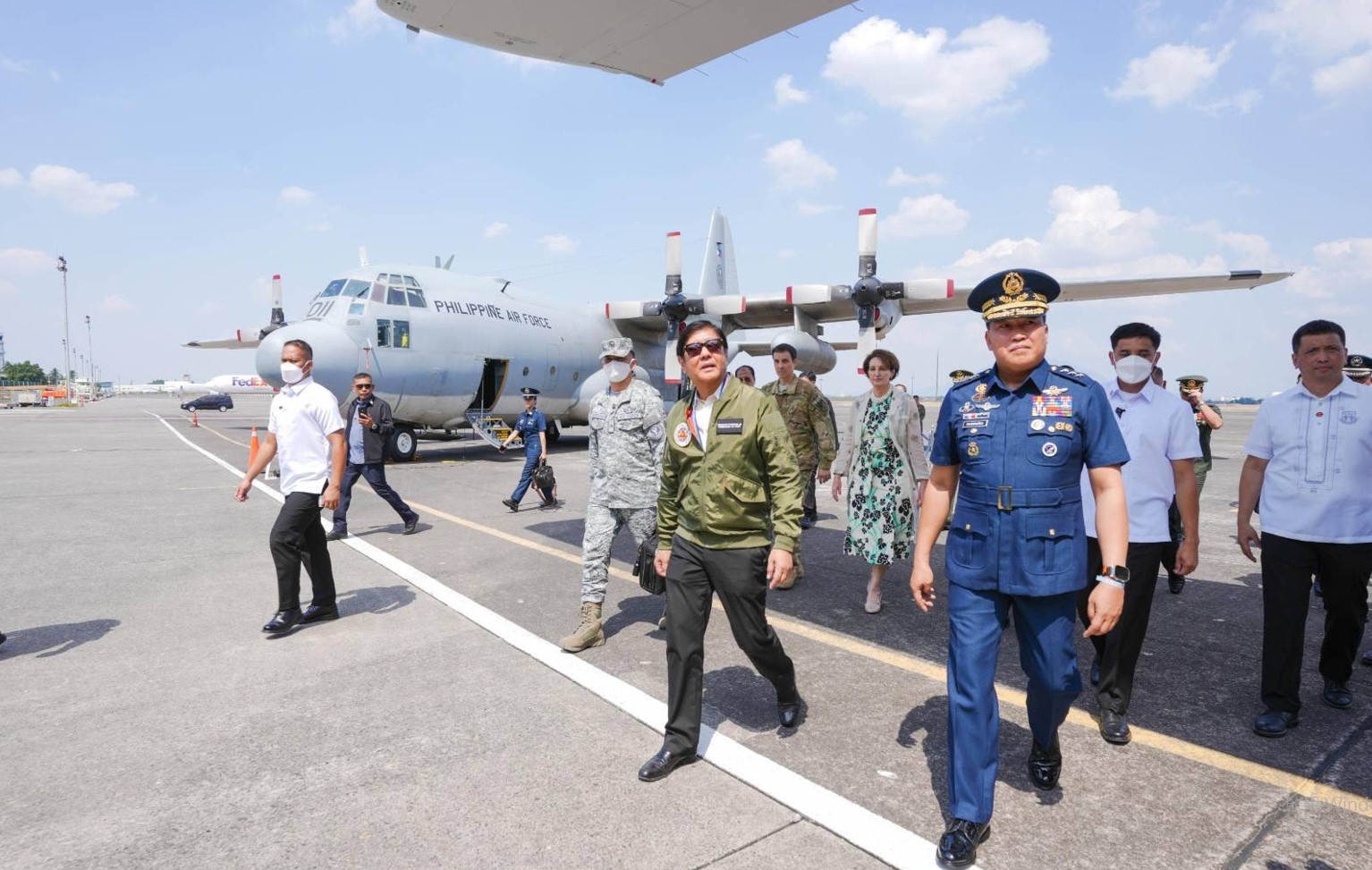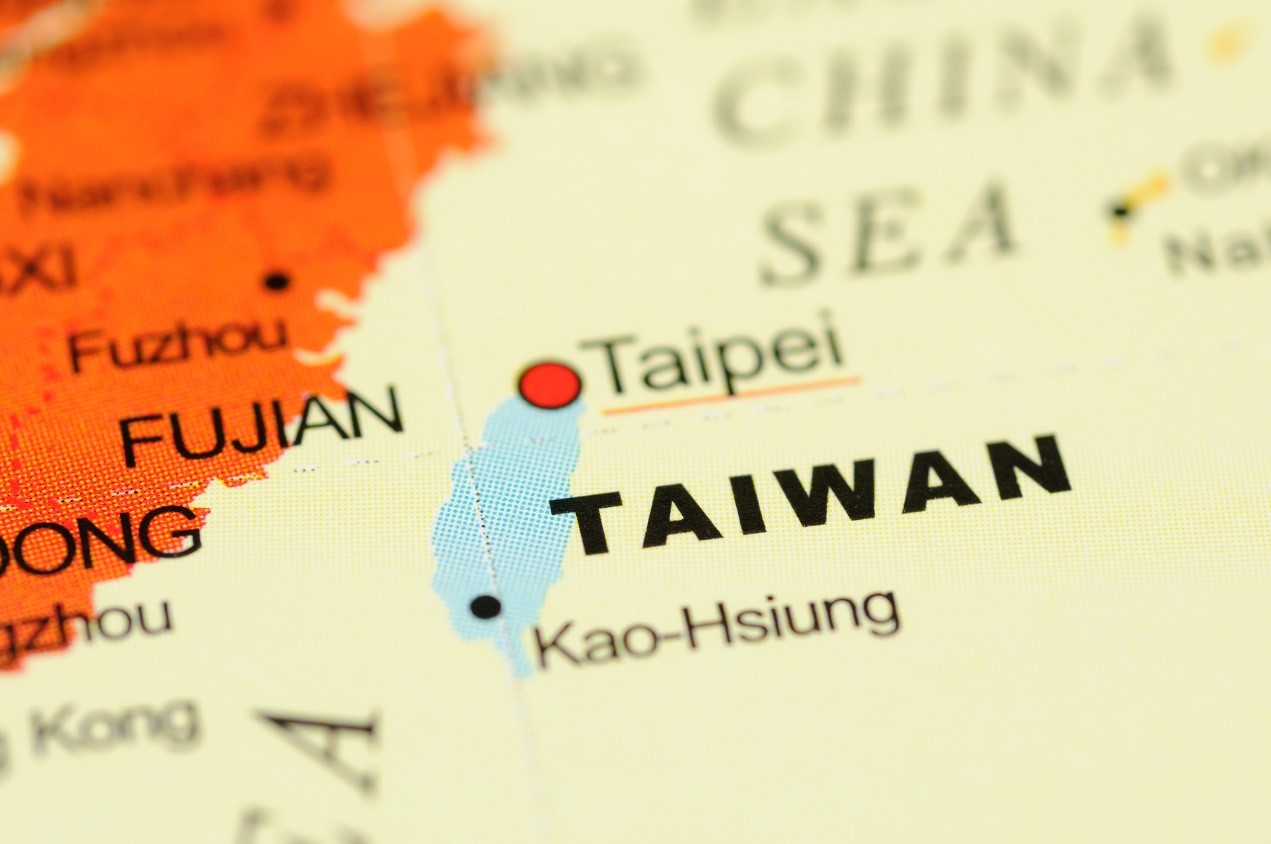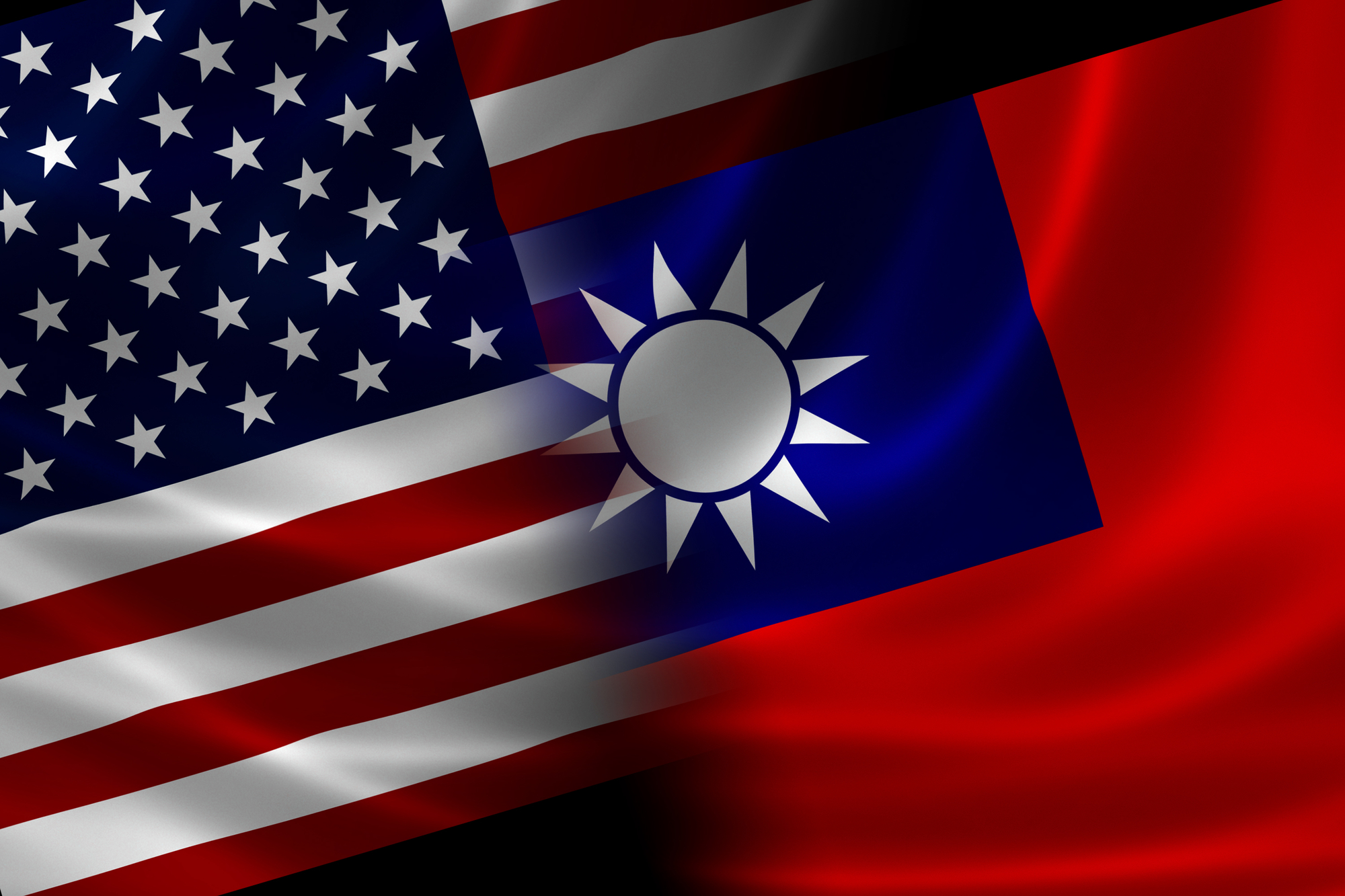“Afghanistan today, Taiwan tomorrow.” This is a false association and analogy. The Taiwanese should have confidence in their democracy and national defense. Moreover, Taiwan can make indispensable contributions to the democratic world. When Taiwan becomes the world’s Taiwan, and provided that the Taiwanese can achieve unity in their resistance to China, Taiwan’s national security and democratic values will stand a much better chance of prevailing.
Picture source: Kylee Gardner, April 27, 2021, Wikipedia, https://zh.wikipedia.org/wiki/%E7%BE%8E%E8%BB%8D%E6%92%A4%E5%87%BA%E9%98%BF%E5%AF%8C%E6%B1%97
Prospects & Perspectives 2021 No. 46
What Afghanistan Tells Us: Lessons for Taiwan
September 2021
Following the withdrawal announced by U.S. President Joe Biden, in recent weeks the United States and its allies have been pulling out their military forces from Afghanistan, ending 20 years of war — the longest in American history. However, because of the corruption and weakness of the Afghan government, the Taliban has swept Afghan defense forces aside and achieved unexpected success in Afghanistan. The collapse of the Afghan government has engendered a strong response in Taiwan. Some politicians have asked what would happen if China launched military incursions into Taiwan, and whether the United States would help defend Taiwan. While this is an unimportant and meaningless issue, we can nevertheless learn important lessons from the failure in Afghanistan.
Taiwan will not be the next Afghanistan
It is unhelpful to compare Taiwan with Afghanistan. First of all, the geopolitics of Taiwan and Afghanistan are markedly different. For the United States, China is currently the most threatening challenger. And Taiwan is located between the two main waterways from Northeast Asia into the South China Sea, the core position within the “first island chain.” The security of Taiwan is not only key for the U.S. to ensure a free and open Indo-Pacific region, but is also essential for the maintenance of the maritime communication line that constitutes Japan’s and South Korea’s lifeline. These geographic characteristics of make Taiwan more important than Afghanistan.
Secondly, the historical background and the symbolic meaning of the democratic values espoused by Taiwan are entirely different from Afghanistan. Taiwan has always been a firm ally of the United States, while Afghanistan is a strategic burden. Seventy percent of Americans indicated that they supported ending the U.S. military presence in Afghanistan, with majorities from both Democrats and Republicans. At the same time, more than half of Americans polled in a new survey said they were in favor of U.S. troops helping defend Taiwan if China attempted an invasion. Besides that, the Afghan government is extremely corrupt, while Taiwan enjoys a stable democracy. As a model of democracy in Asia, Taiwan serves as an irreplaceable role model and has substantial strategic value.
Thirdly, Taiwan is an important partner for the Western world, especially in times of increased Chinese efforts to undermine the global order. In recent years, both the U.S., the U.K. and the rest of the Western democratic world more generally have shifted their trade focus toward Asia. As “China-skepticism” spreads, fueled by the COVID-19 pandemic and Beijing’s continued hostility, Taiwan’s importance has grown rapidly and in a way that Afghanistan could never hope to attain. Most democratic countries, led by the United States, are now strengthening their relations with Taiwan. The U.S., Japan, South Korea, the EU and G7 nations have collectively appealed for maintaining stability in the Taiwan Strait in recognition of the nation’s strategic location within the Indo-Pacific region. Given all this, it is meaningless to compare Taiwan with Afghanistan. Taiwan is not, and will never be, the next Afghanistan. This does not mean, however, that Taiwan cannot learn important lessons from Afghanistan’s collapse.
Lessons from Afghanistan
A close examination of recent developments in Afghanistan can yield indicators that are worth paying attention to. First, Taiwan must improve its defense autonomy. One of the reasons for failure in Afghanistan was that the Afghan military relied too much on the U.S. We cannot assume that a U.S. administration would muster sufficient political support at home to deploy U.S. troops to defend geographically distant Taiwan. Still, Taiwan likely does not have sufficient capabilities to defend itself against a sustained Chinese attack without external support. Taiwan must therefore further develop its indigenous defense industry, especially long-range, and precision-strike weapons to deter China. As Premier Su Tseng-chang has said, “Only if you help yourself can others help you.
”Secondly, facing immense external pressure from China, Taiwanese should be more united. Multiparty competition is the norm and basic value in a democratic country. However, national security should be a cross-party consensus. Taiwan’s national defense is the nation’s own responsibility and Taiwanese must go the extra mile to strengthen the nation’s self-defense capabilities. Additionally, we should also increase measures meant to prevent internal destabilization by proxies of the Chinese Communist Party. Internal divisions and the low morale of military troops and society were the chief reasons for Afghanistan’s failure. We should be more united and improve the morale of our military.
Thirdly, we have to do every effort to increase Taiwan’s strategic value to the world. Epidemic prevention and the semiconductor industry are good examples of areas where Taiwan can underscore its indispensability. From COVID-19 prevention to its position as the world’s top contract manufacturer of semiconductors, Taiwan has many strengths it can build upon. Much Taiwan’s lead in the chip sector can be attributed to Taiwan Semiconductor Manufacturing Company (TSMC), the world’s largest contract chip maker. Reports have argued that U.S. dependence on the Taiwanese semiconductor industry have contributed to Washington’s greater willingness to defend Taiwan against an attack by China. We should therefore redouble our efforts to turn computer chips into a truly strategic industry and thereby increase Taiwan’s value to the international community. Letting the world embrace Taiwan is a strategy to make Taiwan more secure from the threat from China.
Finally, Taiwan should strengthen cooperation with neighboring countries on “gray zone security.” In recent years, China has developed a range of capabilities for gray-zone operations, including both “conventional” and “nonconventional” capabilities. These gray-zone operations create security pressure on neighboring countries from Northeast Asia to the South China Sea. Taiwan and the U.S. have recently signed a Memorandum of Understanding establishing a Coast Guard Working Group that will improve communication, build cooperation, and share information. We should copy this model and apply it to other neighboring countries such as Japan, South Korea, Vietnam, and the Philippines. By making the Taiwan Strait security issue a common good and strengthening Taiwan’s cooperation with neighboring countries, Taiwan can help reduce the likelihood that it will have to respond to pressure from China on its own.
Conclusion
“Afghanistan today, Taiwan tomorrow.” This is a false association and analogy. The Taiwanese should have confidence in their democracy and national defense. Moreover, Taiwan can make indispensable contributions to the democratic world. When Taiwan becomes the world’s Taiwan, and provided that the Taiwanese can achieve unity in their resistance to China, Taiwan’s national security and democratic values will stand a much better chance of prevailing.
(Dr. Shen is Professor, Department of Political Science, Tunghai University)


